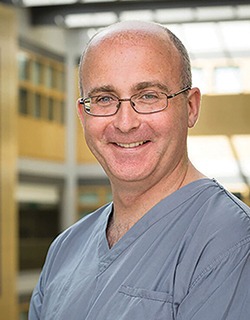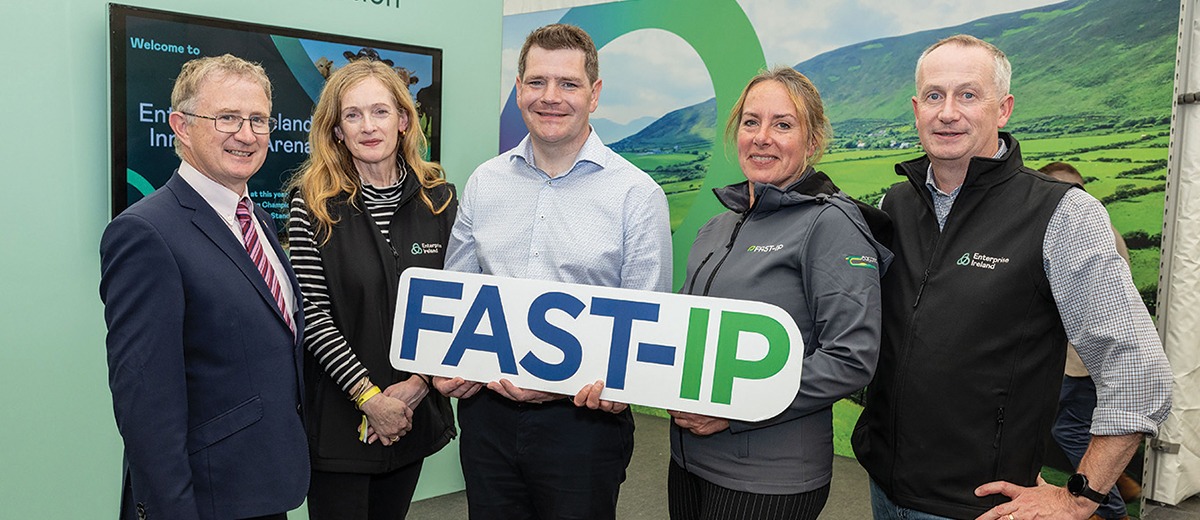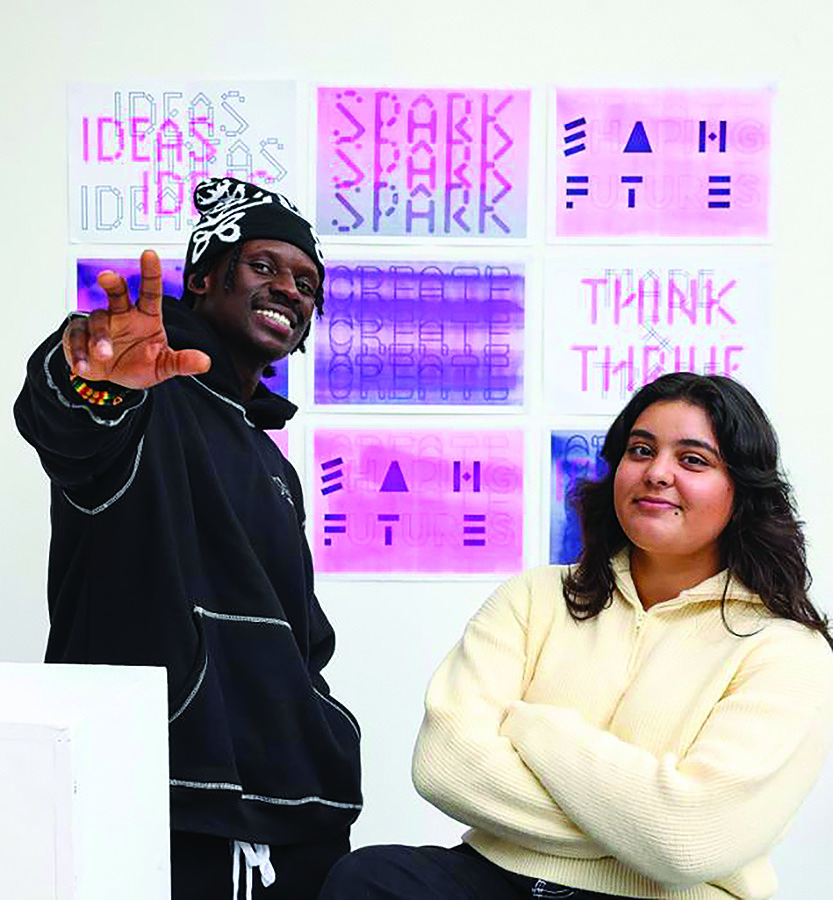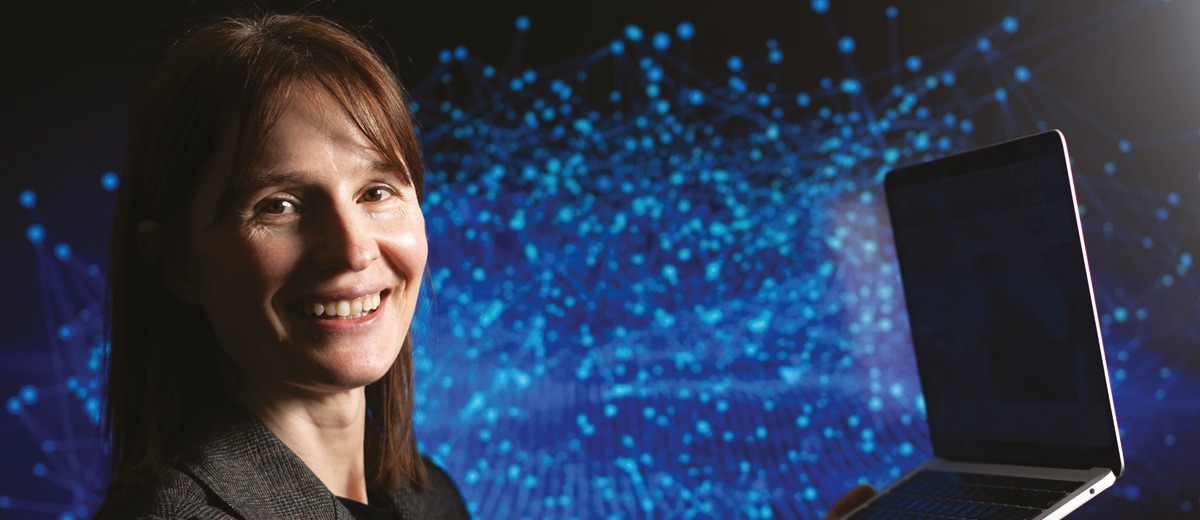Artificial Intelligence (AI) has transformed the world as we know it forever. In its wake, AI cuts two diverging streams of risk and opportunity, both demanding the best expertise and the most inclusive collaboration to be navigated successfully for the benefit of all humanity.
UCD is in pole position to meet this challenge. The University’s world-class researchers across all six colleges are exploring the applications of AI, while those in the schools of mathematics and computer science have been pioneers of fundamental research for decades.
Projects such as GENSHIELD AI (mitigating adversarial threats from generative AI and proactive fraud prevention for future networks), MANOLO (trustworthy efficient AI for cloud-edge computing) and FORSEE (forging successful AI applications for European economy and society), led by UCD Centre for Digital Policy, exemplify national and international research at the highest level.
UCD is home to CeADAR, Ireland’s Centre for AI, which is co-funded by Enterprise Ireland and IDA Ireland. It hosts a European Digital Innovation Hub which supports companies to overcome challenges and enhance their competitiveness through technologies including AI. The University’s innovation hub, NovaUCD, runs the AI Ecosystem Accelerator programme in partnership with CeADAR to support entrepreneurs developing AI solutions for the global market, while UCD School of Computer Science is home to ML-Labs, a Research Ireland-funded PhD training centre.
Associate Professor Brian MacNamee, UCD School of Computer Science, is co-director of the Research Ireland Insight Centre for Data Analytics, which is Ireland’s largest nationally funded research centre and co-hosted at UCD where AI – especially trustworthy AI and ethics in AI – is a key priority.
He said: “I think it’s fair to say that UCD is Ireland’s leader in AI research. We have the greatest concentration of world-leading academics working in the field – a lot of them are involved in Insight. More than 100 UCD researchers at the Centre are working on AI applications, fundamental AI technologies, the next generation of algorithms, tools and techniques that are going to drive the field forward.”
HEALTH
Applying AI to improve patient outcomes
Ireland’s leaders in predictive modelling, precision medicine and bio-clinical informatics are based at UCD. Systems Biology Ireland is leading pioneering genomics and ‘digital twin’ studies in Ireland and the US, which use AI and leading-edge computational approaches for cancer treatment. The MAGIC-I project will offer free enrolment to every child cancer patient on the island of Ireland for the next five years. The new technology matches the best treatment to every patient while reducing negative impacts such as toxicity from chemotherapy.
The UCD AI Healthcare Hub and UCD Centre for Precision Surgery, at the Mater Hospital Digital Surgery Unit, both collaborate with tech partners to enhance healthcare decision-making and the innovation ecosystem through AI technologies.
The UCD Insight Centre is leading the world in how AI is used to interpret mobility data from wearables to manage health outcomes. Researchers at the Centre are also defining how clinicians use AI to augment their work and are supporting Ireland’s first embedded AI researcher at the Mater Hospital.


SPACE
Data-driven missions
Technology in space underpins all aspects of modern life, from communications infrastructure to Earth Observation (EO) data, with vast downstream benefits in sectors such as advanced manufacturing, engineering and climate resilience, all enabled by AI. UCD has been fundamental to developing Ireland’s space sector, launching the first dedicated interdisciplinary space research centre (UCD C-Space) and Ireland’s first satellite in space.
The CAMEO (Creating an Architecture for Manipulating Earth Observation data) project is developing a new platform and tools for the analysis of EO data for use by government, industry and the public. Academic research itself will be a major beneficiary of CAMEO’s data platform.
The All-Ireland AI-enhanced Peatland Monitoring Platform (AI2Peat), which combines artificial and human intelligence to combat climate change, is a project that utilises satellite data, led by iCRAG applied geosciences research centre and CeADAR.

FOOD AND AGRICULTURE
AI-powered insights
Led by UCD School of Computer Science, the CONSUS project (Crop Optimisation Through Sensing, Understanding and Visualisation) was a pioneering strategic partnership between Origin Enterprises and world-class researchers recruited globally for their expertise, exploring digital/precision agriculture and crop science. To this day, the research and innovation generated under CONSUS has been transformational for the company and informs education and research programmes centred on data science, machine learning and new technologies that are disrupting the agricultural and agronomic sectors.
In partnership with Teagasc, UCD’s FAST-IP programme supports early-stage start-ups in agri-tech, providing training in digital agriculture, with access to the AgTechUCD Innovation Centre, which is based at UCD’s research and training farm in Co. Kildare.
At UCD Institute of Food and Health, the Food for Health Ireland programme specialises in the use of bioinformatics and computational approaches in research into food and health, particularly involving peptides. The Institute runs a number of significant projects that apply AI, such as the international WATSON project which uses digital and intelligence-based technologies to assist stakeholders to identify and prevent food fraud across the whole food chain.
UCD School of Biosystems and Food Engineering is pioneering the application of AI in food manufacturing. Its unique programme focuses particularly on the circular bioeconomy and carbon-negative food production, with research areas including multi-sensor data fusion and AI-optimised sustainable food production from waste streams.

DIGITAL CULTURES | CREATIVE FUTURES
Augmenting human creativity
The role of artists, writers, makers, designers and creative thinkers has never been more vital to our world. To support dynamic creative and cultural sectors today and in the future, UCD College of Arts and Humanities has formed a ground-breaking partnership with IADT and NCAD to establish the Creative Futures Academy. Led from UCD, the Academy explores collaborations including with CeADAR, Ireland’s Centre for AI, to explore how this technology can impact the place of reading, writing, thinking, debating, collaborating, and creating.
Since 2018, UCD Centre for Cultural Analytics has been developing a research ecosystem for digital humanities. Providing a hub for international networks, it combines expertise from across arts, humanities and computer science in cultural criticism and data analysis, traditional disciplines and new computational approaches. The Curatr platform developed at UCD Insight – Centre for Data Analytics is a great example of how computational and humanities researchers are together defining how AI can be used to support exploration and curation of literature.

ENGINEERING – MANUFACTURING
Unlocking future potential
Based at UCD, I-Form, the Research Ireland Centre for Advanced Manufacturing, is the national leader in the application of digital and intelligence-based technologies in materials processing. Its researchers use AI, data analytics, augmented reality, predictive modelling and process simulation to create individualised products and new markets that were not previously possible, in areas such as medical devices, aerospace and pharmaceutical manufacturing.
One of I-Form’s funded investigators, from UCD School of Mechanical and Materials Engineering, leads the XenoSim project which uses computational mechanics to run simulations and provide fundamental clinical insights to enable animal-to-human cardiac transplantation.
UCD School of Electrical and Electronic Engineering is home to leading experts in advanced technologies using or enabling machine learning and AI, such as signal processing and quantum computing. Equal1, a UCD spinout and Ireland’s first quantum computing company, has developed the first commercially viable quantum system built to run inside existing AI and high-performance computing data centre environments.

ENVIRONMENTAL SUSTAINABILITY
Towards a common goal
UCD is a leader in Ireland and internationally in net-zero carbon energy research. UCD Energy Institute coordinates the highly ambitious NexSys (Next Generation Energy Systems) programme, with eight leading research institutions and nine industry partners, working towards a decarbonised energy system. Experts across its five research strands use AI and computational technologies to find innovative solutions for this era-defining challenge, including the development of an algorithm to identify reusable energy sources from different consumer groups in cities.
Other major projects in various areas of sustainability at UCD include the UCD-Met Éireann programme which will soon launch a national centre for weather and climate research using AI and data science; AI4Coasts, which uses AI to improve coastal resilience in data-sparse locations; and Vacancy Map Ireland, which is developing an open geospatial data model for vacancy using proxy datasets GIS and AI.
HUMAN-AI INTERACTION
A powerful tool to enhance human capabilities
UCD is a leader in research on how people interact with AI systems, always taking a human-centred perspective that puts people first. Based on decades of world-leading research on recommender systems, researchers at UCD Insight – Centre for Data Analytics have led a multi-year, multi-million euro collaboration with Samsung, redefining how AI is used to recommend media to users. The ViSQOL project, in collaboration with Google, is defining AI-driven objective measures for streaming audio quality. Insight’s cutting-edge explainable AI (XAI) research is defining new ways to make AI models transparent and interpretable.
The HCI@UCD group, one of Ireland’s largest human-computer interaction research groups, performs world-class research. For example, the work led by UCD School of Information and Communication Studies (SICS) on how people interact with AI-powered avatars and the EU Kids Online project which examines how children can safely use generative AI. At UCD School of Electrical and Electronic Engineering, researchers are developing a new generation of sensitive robotic hands and fingers to allow delicate operations.


